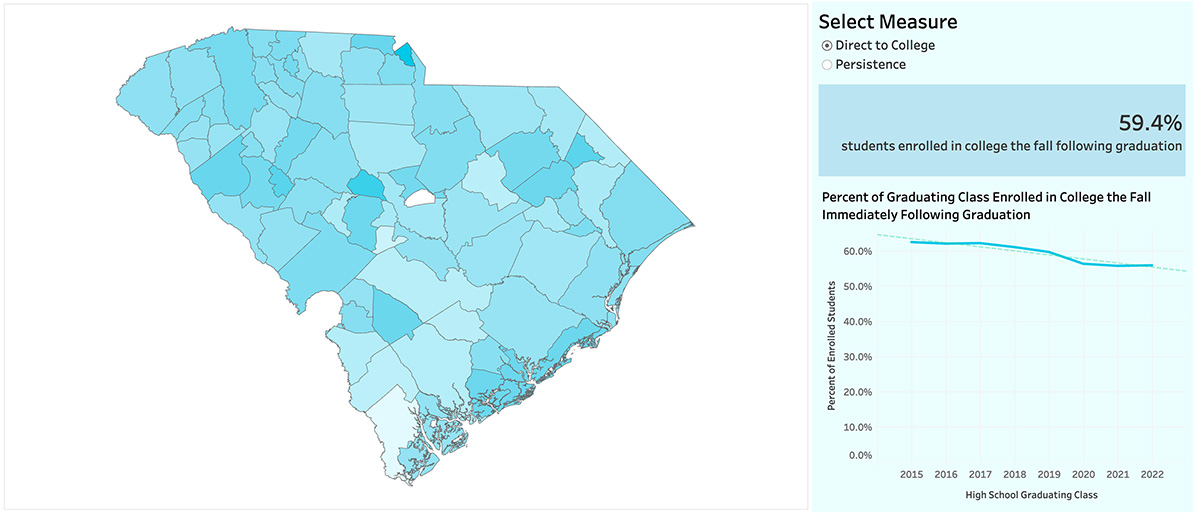Post-Secondary Preparedness & Advancement
- Kindergarten to 8th Grade
- Kindergarten Readiness
- SC READY ELA & Math
- NAEP Reading & Math
- High School
- End-of-Course Achievement
- First Years on Track to Graduate
- Graduation Rate
- Post-Secondary Preparedness
- College or Career Ready
- Credential/Work-Based Learning
- ACT & SAT
- Potential College Credit
- Post-Secondary Advancement
When viewing each chart, click the “i” icon to view more information about the chart.
Back to:
College or Career Ready
Industry Credential/Work-Based Learning
ACT & SAT
Potential College Credit
Why it Matters (Post-Secondary Preparedness)
College or Career Ready
A large and increasing number of jobs with high wages require some form of post-secondary education. Among institutions of higher education and the business community, a high school diploma alone does signify readiness for post-secondary success.
Industry Credential
Although the impact is small, students who earn industry credentials during high school tend to have higher employment rates, more income, and higher rates of college enrollment and persistence. More research is needed to understand which industry credentials provide the most value for students.
Work-Based Learning
Work-based learning develops more professional skills than theoretical knowledge gained in school. This includes soft skills such as initiative, problem solving, use of information sources and entrepreneurship. Students with career oriented education along with work-based learning are more likely to complete high school and have better labor market outcomes, especially for women.
ACT/SAT
Although some colleges and universities are test-optional or test-blind, college admissions experts encourage students to take the ACT or SAT at least once. Even if not required, these test scores can help validate other parts of an application such as the high school transcript. Additionally, many college scholarships have an ACT or SAT test score minimum requirement.
Potential College Credit
Earning college credit in high school increases chances for admission at more selective colleges, saves on college costs and enables students to earn a degree faster. However, students of color are underrepresented in these courses, and colleges differ on the types of college credit they accept.
Why it Matters (Post-Secondary Advancement)
In 2023, median earnings of those with a bachelor’s degree were 66 percent higher than the earnings of high school graduates with no college. Those with an associate degree were 12 percent higher (although 28% of workers with an associate degree earn more than half of workers with a bachelor’s). By 2031, 66 percent of good jobs will require a bachelor’s degree or higher. Adults with higher educational attainment live healthier and longer lives compared with their less educated peers.

